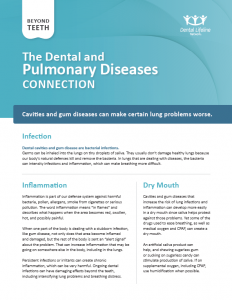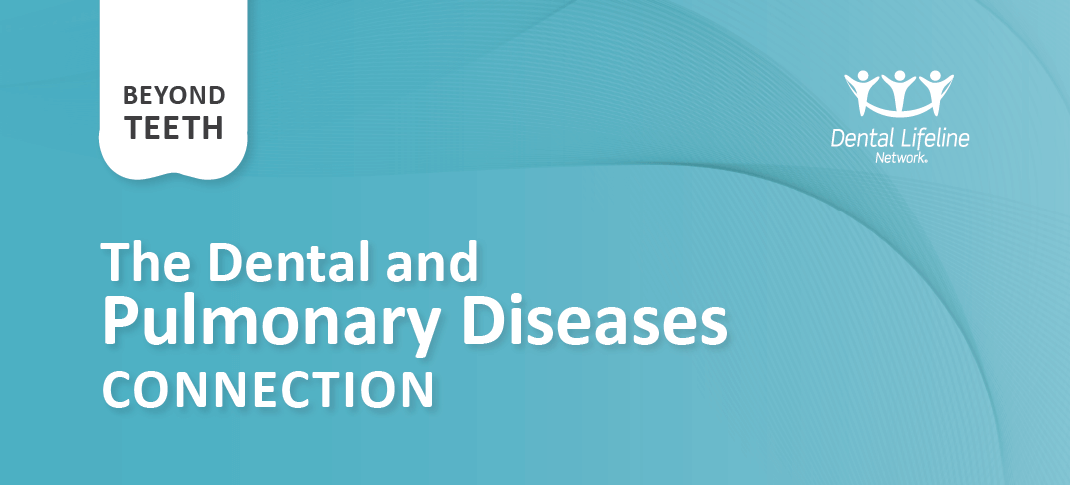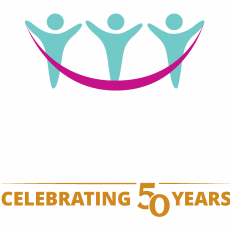Pulmonary Diseases
Cavities and gum diseases can make certain lung problems worse.
Infection
Germs can be inhaled into the lungs on tiny droplets of saliva. They usually don’t damage healthy lungs because our body’s natural defenses kill and remove the bacteria. In lungs that are dealing with diseases, the bacteria can intensity infections and inflammation, which can make breathing more difficult.
Inflammation
Inflammation is part of our defense system against harmful bacteria, pollen, allergens, smoke from cigarettes or serious pollution. The word inflammation means “in flames” and describes what happens when the area becomes red, swollen, hot, and possibly painful.
When one part of the body is dealing with a stubborn infection, like gum disease, not only does that area become inflamed and damaged, but the rest of the body is sent an “alert signal” about the problem. That can increase inflammation that may be going on somewhere else in the body, including in the lungs.
Persistent infections or irritants can create chronic inflammation, which can be very harmful. Ongoing dental infections can have damaging effects beyond the teeth, including intensifying lung problems and breathing distress.
Dry Mouth
Cavities and gum diseases that increase the risk of lung infections and inflammation can develop more easily in a dry mouth since saliva helps protect against those problems. Yet some of the drugs used to ease breathing, as well as medical oxygen and CPAP, can create a dry mouth.
An artificial saliva product can help, and chewing sugarless gum or sucking on sugarless candy can stimulate production of saliva. If on supplemental oxygen, including CPAP, use humidification when possible.
Resources

This information is a public service of the Dental Lifeline Network. The content is for educational purposes only. It should not be used as a substitute for the medical advice of one’s health care provider.
Your Input is Important
Please take a quick 2-3 minute survey to help us improve our communications about this important topic.
"*" indicates required fields


